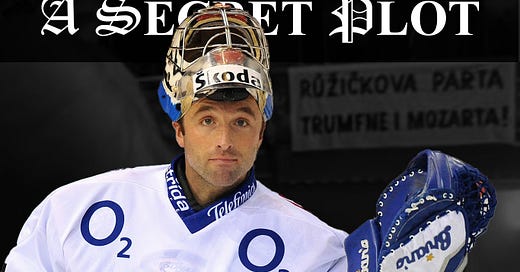Something curious happened during the gold medal awards ceremony of the hockey finals in the 1998 Winter Olympics in Nagano, Japan. The medal presenter, the President of the International Olympic Committee Juan Antonio Samaranch, after having gone down the line, awarding gold medals to the members of the Czech national team, who had just beaten their ar…
Keep reading with a 7-day free trial
Subscribe to A Secret Plot to keep reading this post and get 7 days of free access to the full post archives.




